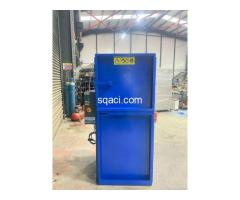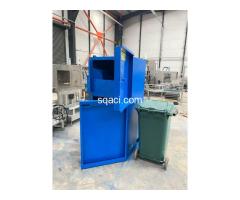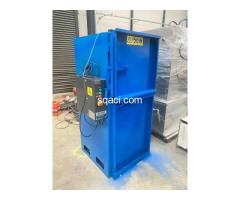In recent decades, the global community has become increasingly aware of the pressing need for sustainable waste management systems. Among the various waste materials contributing to environmental degradation, glass poses a unique challenge due to its non-biodegradable nature. Although glass is 100% recyclable, large quantities still end up in landfills or as litter. In this context, the glass bottle crushing machine has emerged as a pivotal technology that aids in the efficient recycling of glass, thereby reducing waste volume, transportation costs, and environmental impact. This article provides an in-depth exploration of glass bottle crushing machines, including their functions, types, benefits, applications, and future prospects.
1. Understanding Glass Waste and Its Challenges
Glass is a common packaging material used worldwide for beverages, cosmetics, pharmaceuticals, and food. Its durability, impermeability, and inert nature make it ideal for many applications. However, these same properties also make glass waste particularly problematic. When disposed of improperly, glass bottles can persist in the environment for thousands of years. Moreover, glass waste is bulky and heavy, which complicates collection, transport, and disposal. Recycling glass is technically simple but logistically complex. Sorting, cleaning, and transporting whole glass bottles requires considerable effort and resources. Additionally, contamination from caps, labels, and other materials can hinder the recycling process. To overcome these issues, glass bottle crushing machines play an essential role in preprocessing glass waste at the source.
2. What is a Glass Bottle Crushing Machine?
A glass bottle crushing machine is a mechanical device designed to reduce glass bottles into smaller particles or powder. It operates by feeding bottles into a crushing chamber where rotating blades, hammers, or rollers break them down into cullet - small, uniformly sized pieces of glass. These machines can vary greatly in size, capacity, and design, depending on the intended application. The primary goal of the machine is volume reduction and facilitation of recycling. The crushed glass can then be reused in glass manufacturing, construction (as an aggregate), or other industrial applications. Modern glass crushers are designed for safety, efficiency, and minimal maintenance, making them suitable for both industrial and commercial use.
Types of Glass Bottle Crushers
There are several types of glass crushing machines available on the market, each suited for specific needs: these are medium-sized machines often found in bars, restaurants, and hotels. They are capable of processing hundreds of bottles per hour and are ideal for reducing the storage space needed for waste glass. Used in recycling centers, waste management facilities, and glass manufacturing plants, industrial crushers are high-capacity machines that can process several tons of glass per day. They typically come with conveyor systems and dust extraction units. These are compact units designed for mobility. Often used in events, temporary sites, or small businesses, they provide a flexible solution for on-site glass crushing. Used in research and testing environments, these small-scale machines allow controlled glass particle size reduction for experimental purposes.
1 - 2 of 3
Check with seller
ID #2
Modified 3 days ago









Comments